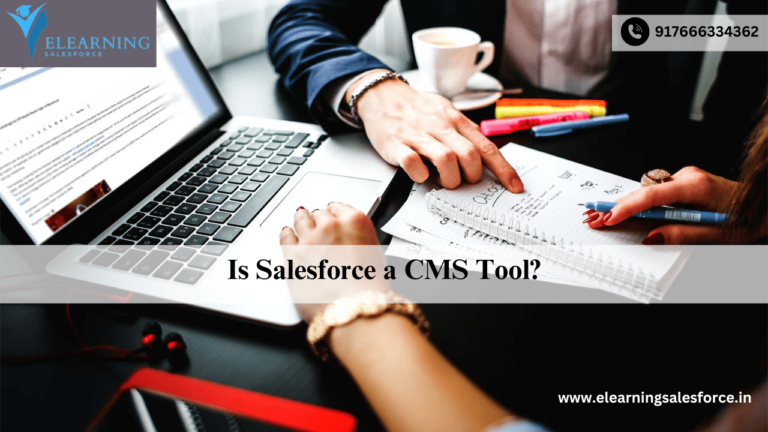In today’s fast-paced business world, customer relationships are at the core of success. This is where Customer Relationship Management (CRM) software comes in. But if you’re just getting started, you may feel overwhelmed by the sheer number of CRM options available. You’re not alone—many businesses, big and small, are trying to figure out which CRM is the best fit for their needs. So, how many CRM software options are there, and how do you know which one is right for you?
Don’t worry—this guide is here to help you navigate the vast world of CRM tools. We’ll cover the basics of CRM, key trends in the market, and how to choose the right CRM software for your business. Plus, we’ll give you practical tips and real-world examples to get you on the path to building strong customer relationships and, ultimately, business success. Let’s dive in!
What is CRM Software?
Let’s first clarify what CRM software is before we explore the vast array of solutions. CRM software is a technology that helps companies keep track of their contacts with both current and potential consumers. It simplifies a number of procedures, including marketing, sales, and customer service, which helps companies better manage and assess their client connections.
Consider a CRM as the virtual assistant for your company, managing everything from customer service tickets to sales leads, contact information, and communication history. CRMs help firms enhance customer happiness, boost revenue, and maximize marketing efforts by centrally keeping all of this data.
How Many CRM Softwares Are There?
In a nutshell, there are hundreds of CRM tools available. By 2025, it is anticipated that the CRM market would have grown to a value of over $80 billion, with thousands of software suppliers serving companies across all sectors and sizes. The choices can seem limitless, ranging from industry titans like Salesforce and HubSpot to niche solutions for sectors like healthcare or real estate.
Finding a CRM that meets your company’s needs is more important than simply knowing how many there are. The varieties of CRM systems and their salient characteristics are broken down to facilitate this decision.
Types of CRM Software
Here’s a look at the different types of CRM systems that are out there:
1. Operational CRM
The goal of these CRMs is to make daily business activities more efficient. They support the automation of procedures such as customer service encounters, sales tracking, and marketing campaigns. Zoho CRM and HubSpot are two examples. They work well for businesses looking to enhance their customer-facing procedures.
2. Analytical CRM
Analytical CRMs are all about analyzing customer data. They help businesses understand customer behavior, predict future trends, and create personalized experiences for clients. Microsoft Dynamics 365 and SAP CRM are examples of analytical CRMs, and they are often used by larger enterprises or businesses with a deep need for data-driven insights.
3. Collaborative CRM
Collaborative CRMs focus on improving communication across different departments within a business. They help teams share customer information in real time, ensuring everyone is on the same page. Pipedrive and Nimble are examples of collaborative CRMs that help sales, marketing, and support teams work together seamlessly.
4. Campaign Management CRM
Campaign management and execution are the areas of expertise for these CRMs. Their main goals are to optimize consumer engagement, track campaign performance, and automate marketing duties. CRM programs from ActiveCampaign and Mailchimp incorporate automation and email marketing.
Market Trends in CRM Software
As the world becomes more connected and technology continues to evolve, CRM software is also evolving to meet new challenges. Here are some key trends in the CRM market that you should be aware of:
1. AI and Automation

CRM software is progressively incorporating artificial intelligence (AI) to automate repetitive operations and analyze massive amounts of data. CRMs with AI capabilities may forecast consumer behavior, recommend next steps for sales teams, and even use chatbots to assist in resolving customer care concerns. In this regard, CRM platforms such as HubSpot AI and Salesforce Einstein are in the forefront.
2. Mobile CRM
In today’s fast-moving business world, access to CRM systems on the go is essential. Mobile CRM apps allow salespeople and customer service reps to access critical data while out in the field, helping them stay productive even when they’re not at a desk. Many CRM providers, like Zoho CRM and Pipedrive, offer mobile apps that sync with their cloud platforms.
3. Cloud-Based CRMs
Cloud-based CRM systems are now the standard. They provide a flexible, cost-effective solution with easy access from anywhere, anytime. Cloud CRMs like Salesforce and HubSpot CRM allow businesses to scale their operations without worrying about managing hardware or IT infrastructure.
4. Personalization and Customer Experience
As customers expect more personalized experiences, CRMs are evolving to offer deeper insights into customer preferences, behaviors, and needs. Many CRM providers now include features like marketing automation, predictive analytics, and personalized content to help businesses deliver exceptional customer experiences.
How to Choose the Right CRM Software for Your Business
With so many CRM tools available, it can be tough to figure out which one is the best fit for your business. Here’s a quick guide to help you make the right choice:
1. Assess Your Business Needs
Think about what your company needs from a CRM. Do you need something to automate sales processes, or is your focus on customer support? Are you a small business or a large enterprise? Understanding your requirements will help you narrow down your options.
2. Evaluate Key Features
Look for CRM systems that offer features relevant to your business, such as lead tracking, email marketing, analytics, and customer segmentation. Some CRMs offer a wide range of features, while others specialize in certain areas. Make sure the CRM you choose fits your unique needs.
3. Consider Scalability
As your business grows, your CRM should grow with you. Look for a CRM that can scale as your team expands, adding more users, automating more tasks, and integrating with other tools as needed.
4. Budget-Friendly Options
CRM systems come in a wide range of price points, from free plans for small businesses to enterprise-level solutions. Compare pricing models and ensure the CRM you choose fits within your budget, keeping in mind the long-term value it provides.
5. Customer Support and Training
Good customer support is crucial, especially when you’re just getting started with a new CRM. Ensure that the CRM provider offers solid customer support, training resources, and tutorials to help your team get up to speed quickly.
Real-World Example: How CRM Transformed a Business
Let’s quickly examine a real-world illustration: Initially concentrating on marketing automation, HubSpot, a CRM, swiftly grew to become a comprehensive sales, marketing, and service platform.
The medium-sized e-commerce business XYZ Corp was having trouble with disjointed client data and poor communication between its marketing and sales departments. They were able to manage client interactions, automate email marketing, and streamline communication all on one platform after putting HubSpot CRM into place. Better customer happiness, higher sales, and enhanced customer involvement resulted from this. Because of the CRM’s features, their sales increased by 35% in a single year.
Conclusion: Take the First Step Toward CRM Success
Don’t let the vastness of the CRM software industry overwhelm you. Assess the many CRM software options available, start with comprehending your company’s requirements, and stay up of industry developments. The right CRM can streamline your operations, improve customer relationships, and help your business thrive.
It’s time to act now that you have the fundamentals. Examine your CRM alternatives, test out a few free versions, and choose which one best suits the objectives of your business. You will reap the rewards of an effective CRM system sooner rather than later.
you may be interested in this blog here:-
Don’t Fear the Update: Navigating the Challenges of how to implement sap note
Five Top Technology Investment Drivers for 2024
How many dollars worth of RSU does Salesforce typically offer an MTS (experienced hire) on joining?
Integration cloud system to HANA Cloud Platform using Cloud Connector



